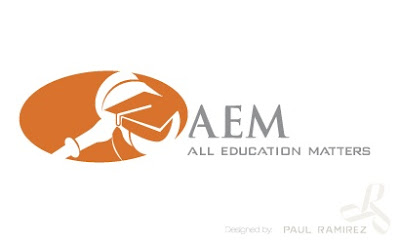So, what is the target? What are these people and their dogs, who are all yapping about the student loan debt crisis missing? Welp, they continue to ignore the over 40 million people with outstanding student loan debt! That's what! I was at a closed meeting about student loan debt, a lunch rather, many many months ago. It was after a hard snow had hit D.C. And I brought up my continued concern about the current borrowers - I call us collateral damage - and you know what some guy said to me? Here's what the guy said, "Oh, well, we have IBR, that's all taken care of. It isn't really a problem."
Oh, really? You say? It isn't a problem? I had some trouble picking my jaw up from the floor after this absurd and fallacious remark was made. But this is the attitude in D.C. This is the line that they want everyone to believe. Because they don't want the politicians and anyone who actually gives a shit to do the hard work now. Because if we did the hard work now, and we worked on the people who are struggling with the current debt, then we'd really have to put our heads together and stop yapping about bullshit in the future.
Don't get me wrong, I think it's all well and good to be talking about debt free community college and debt free college in general - that's pretty dandy (I am in full support of these initiatives as a matter of fact). But let's not forget about the damned current borrowers. We're all clever folks. I know we are. But even the problem solvers and the ones who have hearts are being blinded by a poor narrative, one that wants them all to believe that they can't solve the problem of the current student loan debt crisis for those who have the debt.
In short, don't forget about the current borrowers. Don't consider us collateral damage.
 |
| Getty Images |

Debt Collective has the right idea WE WON'T PAY!
ReplyDeleteThe "taxpayers" did not lend money on the old FFELP loans - private lenders did.
Now with "direct" loans the program is funded by US Treasury borrowing! The debt from "direct" loans is already counted in the national debt. OUR national debt. The national debt of OUR generation, because the geezers in Congress and the geezers in the USA will be dead before the bill comes due.
Gen X, Gen Y, Millennials are the ones on the hook for the national debt.
It is literally none of the Baby Boomer Generation's business if we want a debt jubilee. They are not being asked to pay for it - EVER.
So stop paying. Make them chase you around with garnishment. THIS IS OUR COUNTRY NOW.
Thank you so much for saying this. I have been saying it for years. All "solutions" only seek to address current and future students, not the borrowers who have been paying for decades and are still in tens of thousands of dollars of debt.
ReplyDeleteWhat about people with private loans? I have federal AND private loans after attending public universities. I allegedly (you know my story) took out $60,000.00 with Chase in private loans. Over the last 10 years, I have repaid $75,000.00. How much do I owe? Over $56,000.00. Can you explain to me how this happens?
IBR does NOT apply to private loans. Furthermore, it is not a real solution for federal loans. Not all people with federal loans qualify. My husband's 20=year-old loans were consolidated probably 10 years ago. He happened to have his father cosign on one when he began college. Since the loans were consolidated into one sum, he is told that the one loan keeps him from qualifying for IBR. Even if you qualify, it is not a real solution because you owe taxes on massive amounts of money that are "forgiven" after 20 years of payment. For some people, this could be as much as a million dollars if IBR payments are so low that interest continues to accrue over 20 years.
I am just as angry as you are. I want to live like a normal person, too. I've worked my ass off for YEARS and frankly, I've had enough of this racket.
-B
@2:53 PM: When FFELP borrowers do not pay, the government pays reinsurance to the lender covering about 95 percent of outstanding principal and capitalized interest. And direct loans are assets on the government balance sheet, not liabilities. If a bank opens for the first time for business on Dec. 31 and lends out $100 during the day before closing for New Year's Eve, that is not a $100 loss for the year. The $100 is an asset. As the bank lends out thousands, millions, and billions of dollars, it creates a loan loss reserve. The government does the same thing. It does not assume that 100 percent of every loan will be repaid within 30 years.
ReplyDelete